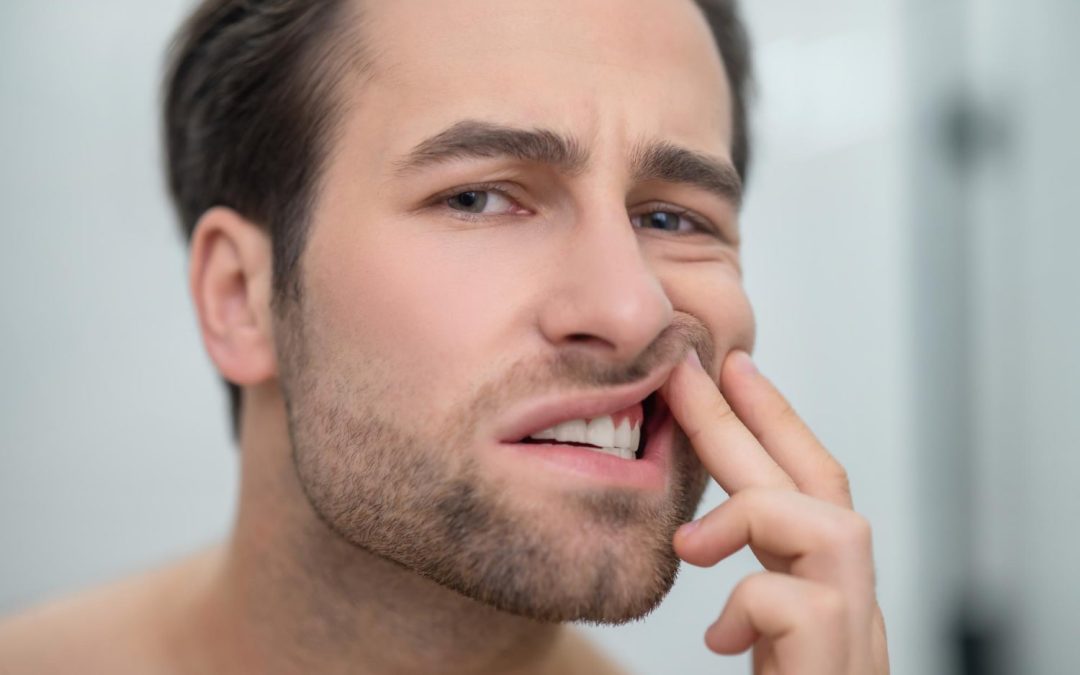Are you feeling instant sensation after sipping hot coffee or enjoying an ice cream? Then you have tooth sensitivity. It is a common yet most misunderstood dental issue. But you don’t need to be worry, here we are sharing what is tooth sensitivity exactly and its causes. Also we will discuss what you can do about it?
Let’s figure it out!
What is Tooth Sensitivity?
Tooth Sensitivity is also known as dentin hypersensitivity, which crates sharp or sudden pain in the tooth after eating or drinking something. Mainly it happens when the inner layers of your tooth become exposed. Generally, teeth are protected by the hard outer layer called enamel and gum line which shields the sensitive root area.
If this protection is compromised, the nerves inside your tooth get exposed to external stimuli like acidity, pressure, and cold that causing sudden sharp pain or discomfort for a minute.
Causes of Tooth Sensitivity
Let’s figure out some sensitive tooth causes before knowing what to do when tooth is sensitive.
1. Enamel Erosion
Enamel is the most important layer of tooth. it is strong, however not indestructible. Over the time it may wear due to aggressive brushing, acidic foods and drinks, grinding or clenching teeth, and frequent vomiting.
When enamel erodes, it exposes the dentin, a softer layer that has tiny nerve channels. This makes your teeth much more sensitive to temperature changes, sweetness, and even touch.
How to prevent it: Use a soft-bristled toothbrush, avoid acidic food/drink overconsumption, and wait 30 minutes after eating acidic food before brushing.
2. Tooth Decay or Cavities
Tooth decay or cavities is the second most common cause of feeling sensitivity in teeth. Cavities generally caused due to plaque buildup, which produces acid through enamel. And when it reaches to dentin layer or deeper, it exposes the nerve endings to everything you eat or drink.
Here are the signs you can check:
- Sensitivity to sweets
- Sharp pain after eating
- Dark spots on the tooth
- Visible holes
How to prevent it: Brush twice daily, floss daily, and see your dentist every 6 months for early detection.
3. Gum Recession
If you have healthy gums, there is no chance you feel sensitivity. But when your gums recede, they pull back and expose the root surface, which impacts the protective enamel layer and creates sharp or unbelievable sensitivity.
Common causes of gum recession include:
- Periodontal (gum) disease
- Brushing too hard
- Poor oral hygiene
- Smoking or tobacco use
How to prevent it: Maintain good oral hygiene, brush gently, and avoid tobacco. Visit your dentist if your teeth start to look “longer” than usual.
4. Cracked or Chipped Teeth
Small cracks or chip in your tooth might not be visible or sometimes ignored, but it can definitely cause pain. So, if you see your tooth is cracked and bacteria causes pain, rush to the doctor. If it is ignored longer you feel intense sensitivity.
Common causes of cracks:
- Biting down on hard objects
- Facial trauma
- Grinding (bruxism)
- Sudden temperature changes (like biting ice after hot food)
How to prevent it: Avoid chewing ice or hard candies, wear a mouthguard at night if you grind your teeth, and get regular checkups to catch hidden fractures.
5. Whitening Products and Treatments
Whatever the chance we get to brighter our smile, we just rush insane. And that’s the biggest mistake. Unfortunately many teeth whitening products uses bleaching agents that damages enamel and irritate the nerves inside the tooth.
Here’s what you may feel:
- Short burst of pain when eating cold or sweet foods
- Tingling sensation during or after whitening treatment
How to prevent it: Use products labeled for “sensitive teeth” and take breaks between treatments. If symptoms persist, talk to your dentist about alternatives.
6. Overbrushing or Brushing Incorrectly
We often think keep brushing your teeth is good habit but doing it rigorously or more than twice a day can give negative results. Aggressive brushing or using hard-bristles toothbrush can wear away enamel and cause gum recession.
Warning signs of overbrushing:
- Splayed brush bristles
- Teeth that look notched near the gum line
- Receding gums
How to prevent it: Use a soft-bristled toothbrush, brush gently in circular motions, and replace your toothbrush every 3 months.
7. Post Dental Procedures
After dental treatments such as fillings, teeth cleaning, root canal, and crown replacement sensitivity usually occurs and fix after a few days. However, if it persists, it may cause infection or allergic reaction to dental materials.
How to prevent it: Follow your dentist’s post-care instructions. If discomfort continues beyond a week, schedule a follow-up.
Common Questions About Tooth Sensitivity
How long does tooth sensitivity last?
Temporary sensitivity (from whitening or washing) may resolve in a few days. Persistent pain necessitates professional attention.
Can sensitive teeth be indicative of gum disease?
Yes. Gum recession from gum disease frequently exposes the roots, resulting in sensitivity.
What foods should be avoided?
Avoid consuming acidic foods such as citrus, soda, wine, and vinegar. If you’re sensitive, restrict your exposure to extremely hot or cold foods.
Final Thoughts
Tooth sensitivity is more than just a little irritation; it’s often a signal from your body that your teeth require extra care. If you’re suffering with ongoing sensitivity, don’t try to tough it out. Visit your local General Dentistry and know the suitable tooth sensitivity treatment options form experts.
The sooner you can pinpoint the underlying reason, the easier it will be to treat and enjoy life without the unpleasant zing in your teeth.










